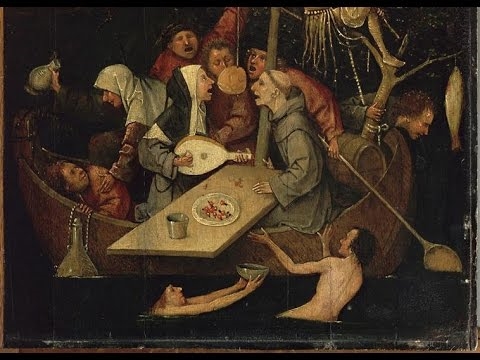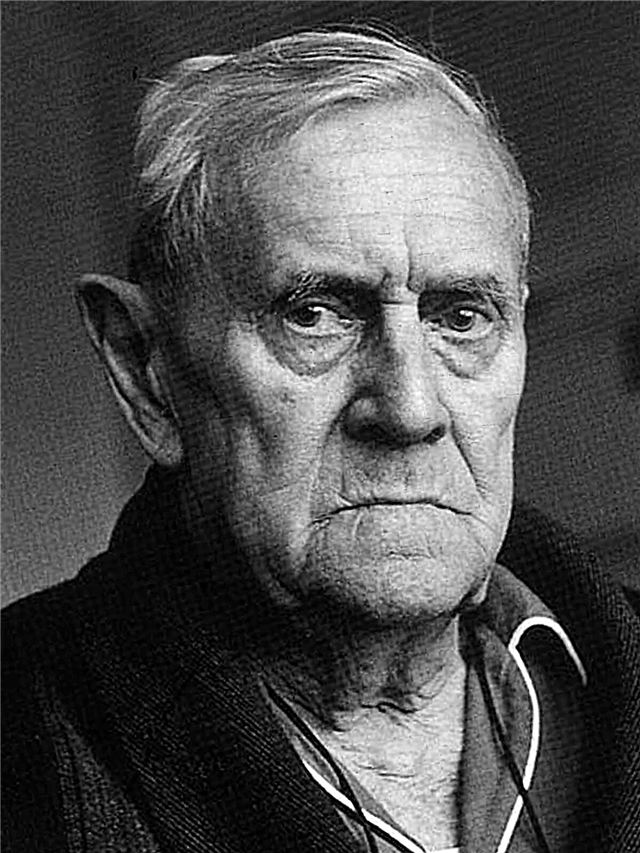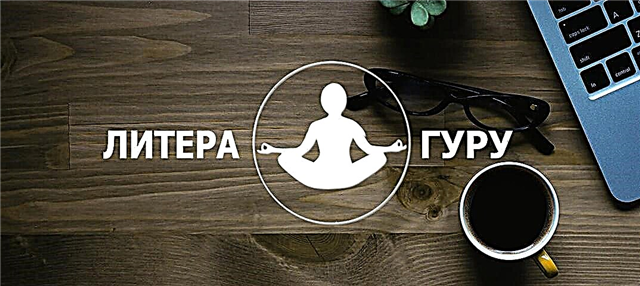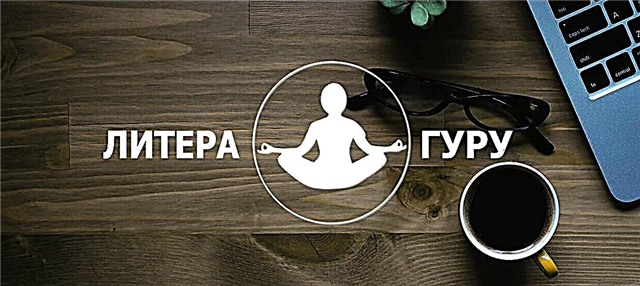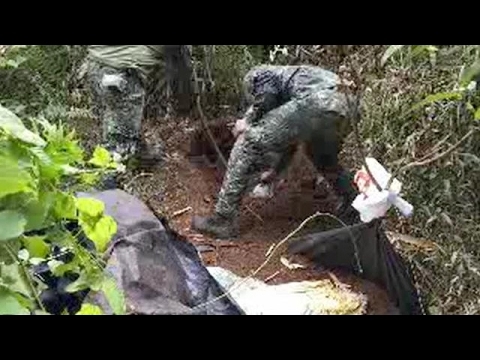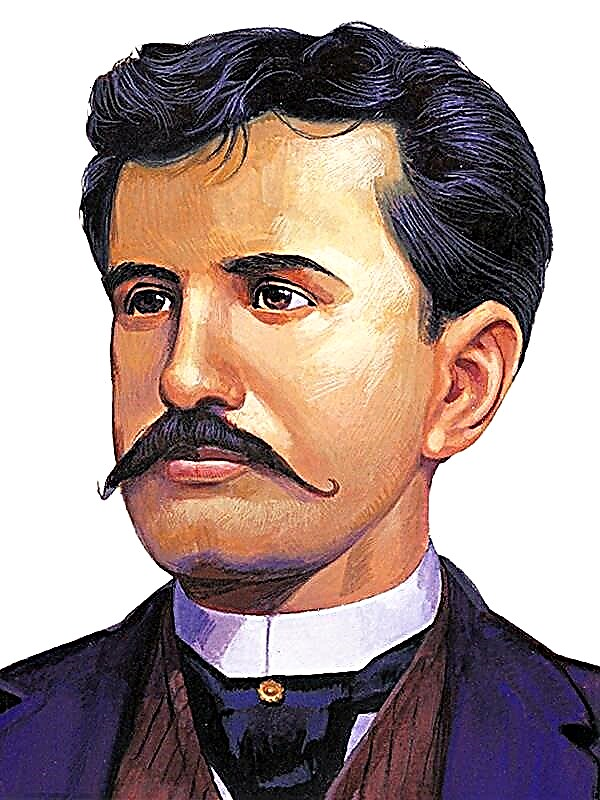“The Story ...” begins with the prayer of Innocent, the author of the work, who asks the Lord to help him in his work. This is a traditional technique used in everyday literature. Then begins the narrative itself, conducted in the first person. On Thursday, the third week after Easter, Elder Paphnutius invites the monk Innocent to go with him to the monastery. When Paphnutius and his disciple come to the pond and approach the place behind the dam, they see a stream leaking through it. The elder instructs Innocent how to block the path of water. The student wonders why the elder is saying this now - so he will come to work with the brethren, and the elder will lead them. Paphnutius answers this, that he has a more important matter.
After the service of the sixth hour, Paphnutius calls the monk to his cell. When he enters, he sees Paphnutius in bed in all his vestments. The Blessed One tells the disciple that "the bond must be resolved." Not understanding his words, seized by fear from this, Innocent does not say anything and submits to Paphnutius - he goes to work on the dam, where the abbot sends him. But neither Innocent nor the other monks can work because of the "confusion" in the souls.
Returning to the monastery, the monks find Paphnutius in his cell.He asks as soon as possible to send to Prince Mikhail and asks him that the prince himself should not go to the monastery himself and not send anyone to Paphnutius, because he “sat down” with “other concerns”. In the evening, the abbot is not present at the service in the church, and answers the perplexed questions of the monks that on the same day of the week, Thursday, he will get rid of his weakness. Thus, the author shows that blessed Paphnutius already knows in advance the time of his death. The misunderstanding of the monks was deliberately exaggerated in the narrative in order to emphasize the gift of foresight of the saint, which was not given to ordinary people.
Paphnutius listens to the morning service again in his cell, and then calls all the brothers and apologizes to them. At the same time, he refuses to bless the artisan Dionysius, who was accidentally in the monastery at that time, explaining that he could not help himself. The abbot lets go of the brethren (there were ninety-five people in the monastery at that time, as Innocent notes), and Innocent asks to remain with him constantly. The student describes in detail what services Paphnutius performed. Thus, we can really assume that the "Story ..." was written on the basis of real diary entries, since the monks calculated the time of day according to church services.
Meanwhile, Prince Mikhail sends to find out why Paphnutius did not order anyone to receive, to which the elder replies: "He has nothing to do with me." The abbot also does not accept letters and money from the Tver inheritance and is angry when Innokenty tries to leave them all the same.The author always emphasizes that Elder Paphnutius renounces all earthly affairs and spiritually begins to prepare for death when none of those around him still understands this. Some features that Innocent notes in the abbot’s behavior are familiar to others, but are aggravated (for example, not to miss a single verse or words in the verse), others are unusual (he allows you to light a lamp in the cell after Vespers, although he usually prayed after service in the dark , calls to himself a priest before the sacrament, although before that he had never spoken to anyone in such a situation even about the most urgent matters).
Described in the "Story ..." and relations with secular authorities. Despite the fact that Paphnutius does not want to receive the envoys of Prince Michael, even the priest, by his actions he not only shows his own estrangement from the world, but also the prince’s wrongness, since he asks for blessings only for himself and one son. “Is Prince Vasily not his son?” Himself in his family causes discord, ”says Elder Paphnutius. Pop Ivan, the prince’s messenger, is still trying to achieve his goal and receive a blessing. He goes to church, hoping to meet the abbot there during the service. Paphnutius, having noticed this, quickly passes to the altar. And only after the priest leaves the monastery, Paphnutius leaves the church and returns to his cell.
Paphnutius also answers the requests of other princes - Grand Duke Ivan Vasilievich, Grand Duchess Maria, Grand Duchess Sophia of Greece, refusing to accept letters, gifts, and messengers.
To the question of Innocent, what will his testament be about the monastery structure, Paphnutius responds with a lengthy conversation, and does not call the successor after the abbess, saying that he entrusts the monastery to the Most Holy. Innocent notes that the abbot had never called the monastery his own, but the Prechistaya, saying: "She created." Immediately before his death, Paphnutius predicts a rebellion among the brethren. In the context of his previous words, it can be understood somehow that the old man did not have a close student whom he would like to see as abbot, and therefore he considered possible disagreements between the brethren on this matter. In the future, in the Life of Joseph of Volotsk, it will be said that St. Paphnutius bequeathed his monastery to Joseph, who was his closest disciple.
The death of a saint is described simply and touchingly: “And the soul flew away from the old man, for he fell asleep with an eternal sleep, extended his legs and folded his arms crosswise, joined the holy fathers, whose life he imitated.”

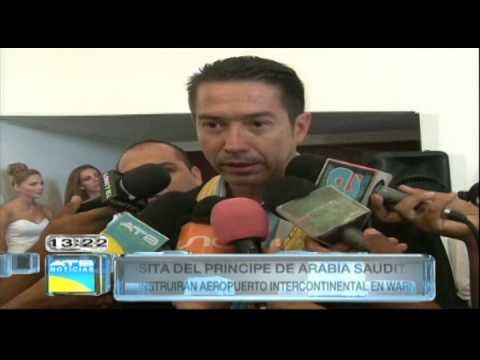
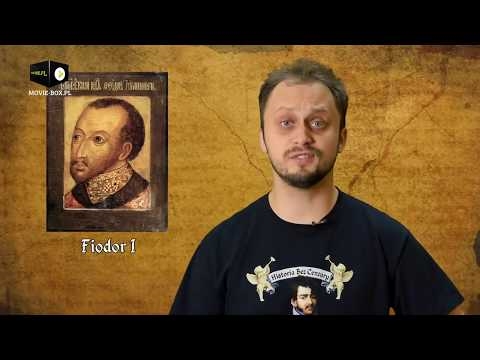
 Tilemahide
Tilemahide